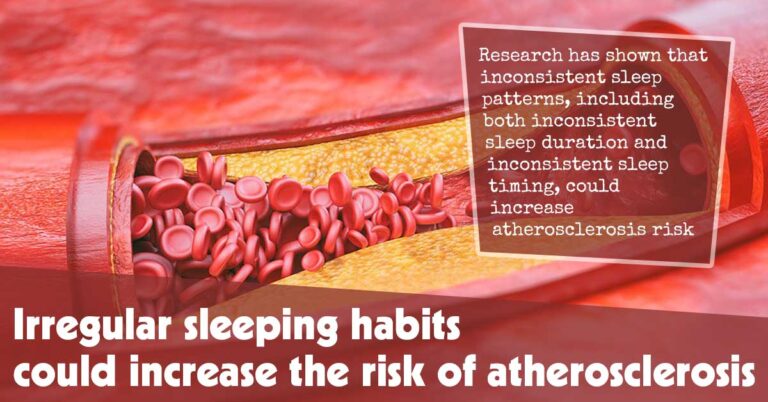Irregular Sleep Patterns May Heighten the Risk of Atherosclerosis
Researchers have found that individuals older than 45 years old who are inconsistent in their sleep habits, both in terms of sleep duration and sleep timing, may be at greater risk for developing atherosclerosis.
Atherosclerosis occurs when fatty deposits accumulate on the artery walls. This can lead to a narrowing and a reduction in blood flow that may cause heart attacks or strokes.
The study included over 2,000 participants, with an average age 69 years. Participants were men and women of different ethnicities who had no cardiovascular disease.
The participants wore an electronic wristband to track their sleeping patterns, and kept a daily sleep journal for seven consecutive days. The participants also completed a sleep study at home for one night in order to evaluate various sleep disorders.
Sleep timing is the amount of time that an individual spends asleep each night.
In one week, the highest number of hours that individuals slept irregularly was over 2 hours. The individuals with the most irregular sleep timing changed the time they fell asleep by more than 90 minutes over the course of a week.
Carotid plaque, or fatty accumulation of plaque in neck arteries, was measured.
The study found that:
- People with sleep irregularity that varies by more than two hours per week had a higher risk of high coronary calcium scores. This indicates an increased cardiovascular disease risk.
- Sleep duration irregularities, which vary by more than two hours per week, were associated with a 1,12-fold increased risk of carotid artery plaque, and a nearly 2-fold increase in abnormal ankle-brachial indices.
- There was no association between abnormal carotid media thickness and irregular sleep duration.
- The odds of high coronary calcium scores were 1.43 times higher for individuals who had a more irregular sleep schedule, with a variation of 90 minutes over a seven-day period, as compared to those with a more regular sleep schedule, with a variation of less than 30 minutes.
- There was little evidence to suggest that irregular sleep patterns are associated with cardiovascular disease.
The study emphasizes the importance of maintaining consistent sleeping patterns to reduce atherosclerosis, and other cardiovascular diseases.
